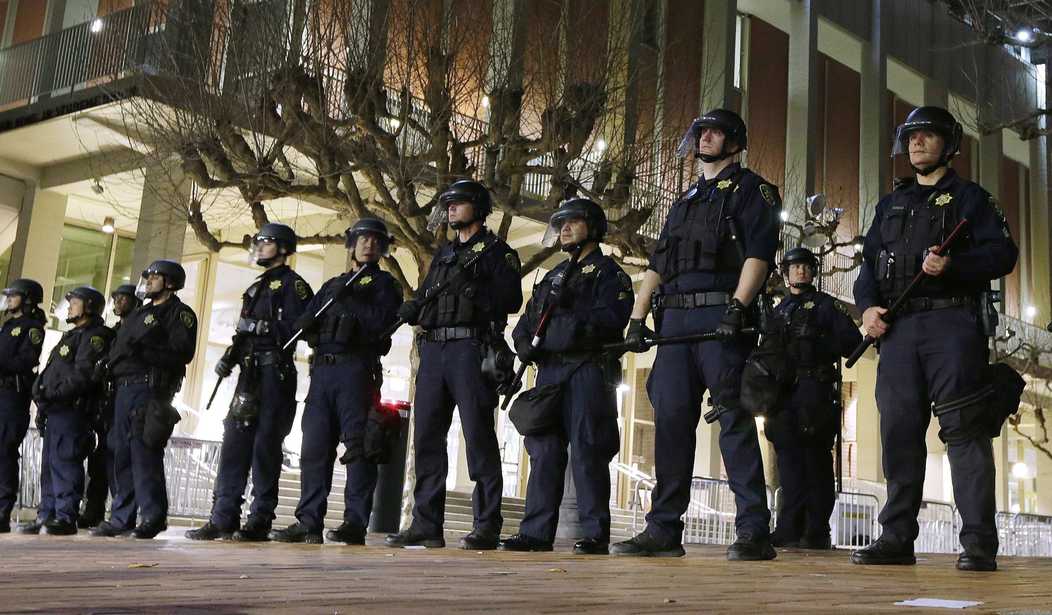When an outlet like PJ Media points out that saying “speech is violence” justifies actual violence, it gets dismissed because, after all, it’s our speech that’s supposedly violent. We’re the ones who stand up for the First Amendment on a daily basis, and the Left doesn’t like that.
Of course, claiming “speech is violence” can be used to justify violence isn’t controversial. Anyone with half a brain knows that. At least now an outlet that’s generally on the Left, The Atlantic, is pointing out the idiocy of that line of thinking:
This is why the idea that speech is violence is so dangerous. It tells the members of a generation already beset by anxiety and depression that the world is a far more violent and threatening place than it really is. It tells them that words, ideas, and speakers can literally kill them. Even worse: At a time of rapidly rising political polarization in America, it helps a small subset of that generation justify political violence.
A few days after the riot that shut down Yiannopoulos’s talk at Berkeley, in which many people were punched, beaten, and pepper sprayed by masked protesters, the main campus newspaper ran five op-ed essays by students and recent alumni under the series title “Violence as self defense.” One excerpt: “Asking people to maintain peaceful dialogue with those who legitimately do not think their lives matter is a violent act.”
The implication of this expansive use of the word “violence” is that “we” are justified in punching and pepper-spraying “them,” even if all they did was say words. We’re just defending ourselves against their “violence.” But if this way of thinking leads to actual violence, and if that violence triggers counter-violence from the other side (as happened a few weeks later at Berkeley), then where does it end? In the country’s polarized democracy, telling young people that “words are violence” may in fact lead to a rise in real, physical violence.
Free speech, properly understood, is not violence. It is a cure for violence.
That last sentence is key.
The issue on American campuses, and with the left in general, isn’t that they dislike what some people say. That’s just part of life. The issue is that they dislike what those people say so much, they came up with “speech is violence” to shut them up.
They have it in their head that the words of someone like Milo Yiannopolous are so toxic, no one can be permitted to hear them lest they become infected with a deadly virus. They treat speech like a biological warfare agent when it’s nothing of the sort.
The funny thing is that their violence, the actual violence they commit to combat so-called violent speech, actually helps spread the word. How many people had no clue who Milo was until after Berkeley students rioted? Charles Murray saw popularity in his book increase following the antics of Middlebury students.
They did more to spread that speech than Milo, Murray, or any other right-leaning speaker could have done that day. A small speech on a college campus ended up on every computer screen in the country.
Ironically, these children have become everything they claim to hate and have helped spread every message they claim to hate.









Join the conversation as a VIP Member